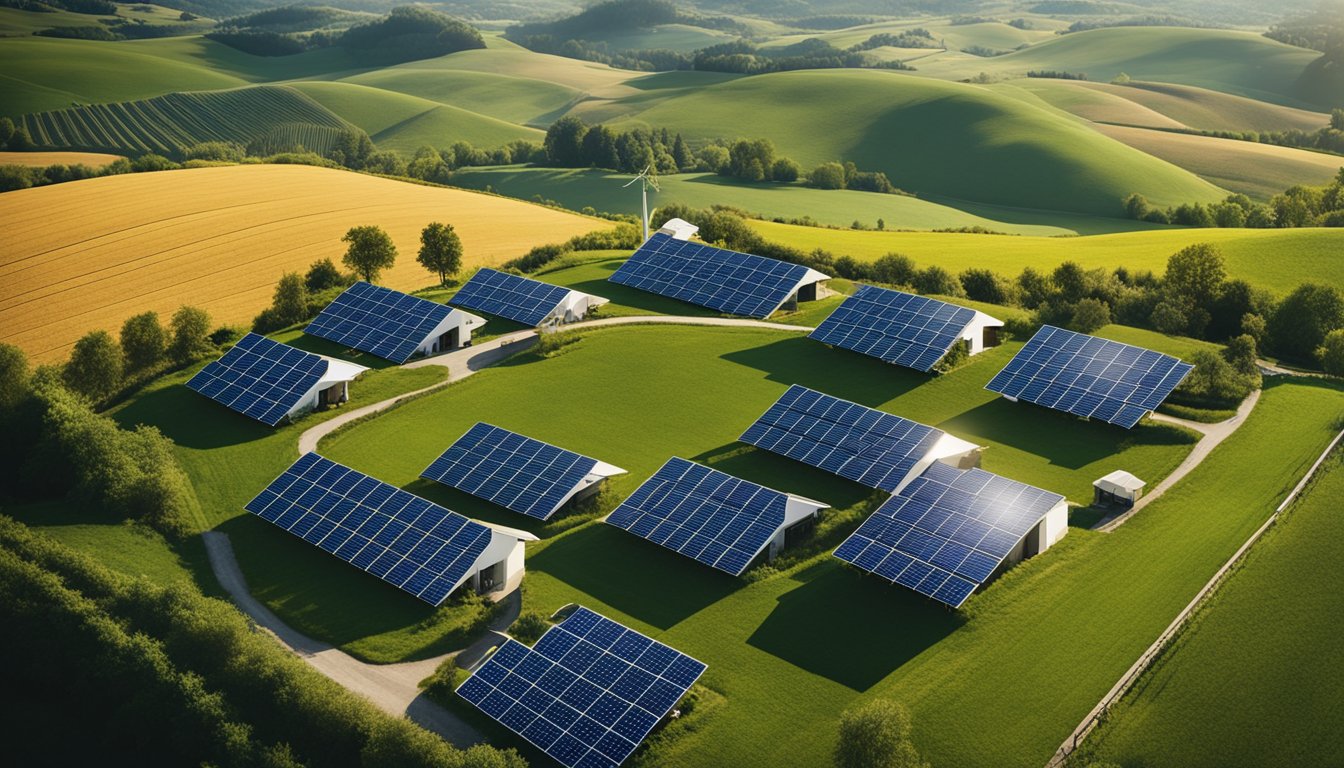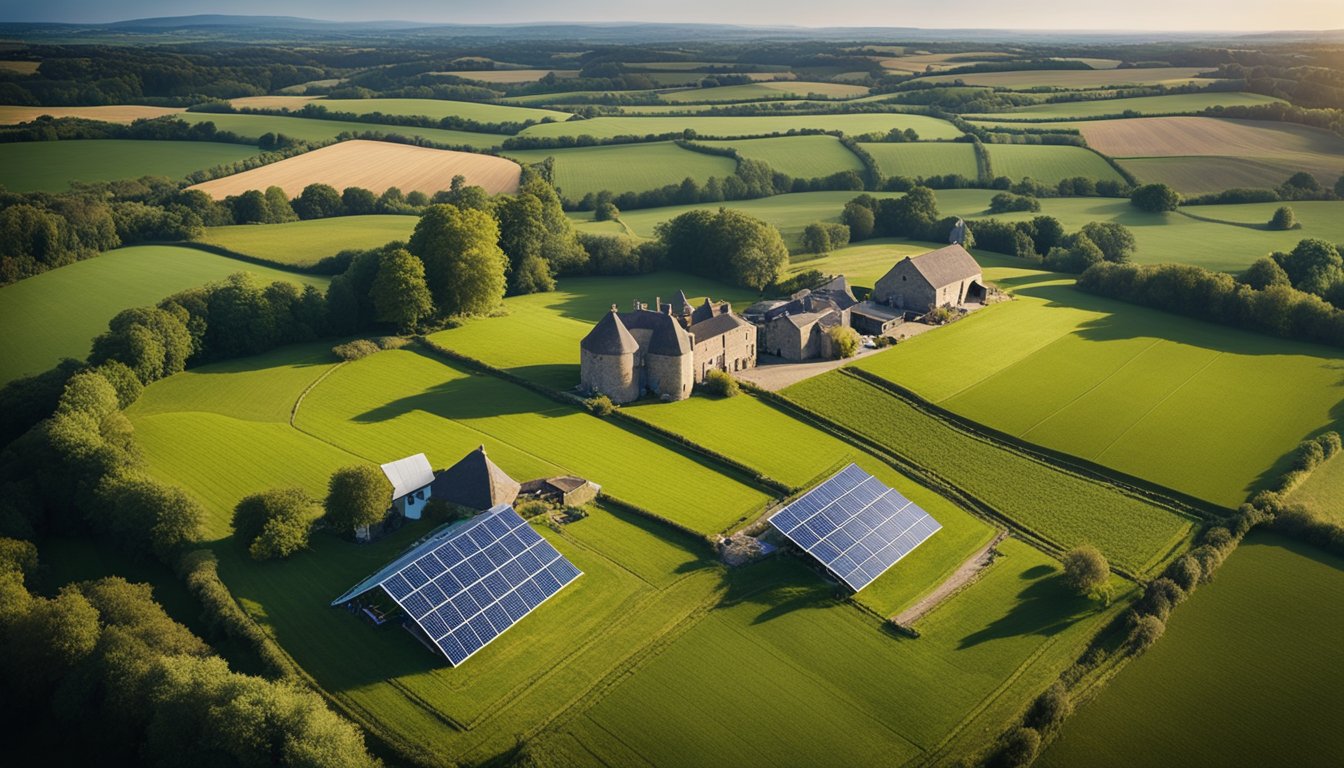Late updated: 23 Jul 2024 10:07
Written by: Oliver Bennett
Emerging Technologies In Rural UK's Digital Landscape: Transforming Connectivity and Growth
Welcome to our exploration of the emerging technologies in rural UK's digital landscape. With the rapid advancement of digital connectivity, rural areas in the UK are poised for significant transformation. These technological innovations promise to bridge the digital divide, bringing economic growth and new opportunities to the countryside.

Rural areas are harnessing the power of digital connectivity to boost their local economies. Enhanced broadband services, smart agriculture, and digital education platforms are just a few examples of how technology is reshaping rural communities. These technological developments are not just improving local infrastructures but also supporting the transition to 'smart rural' futures.
As we delve further into the impact of these advancements, we will uncover how businesses in rural UK are thriving in the digital economy. Cutting-edge technologies and innovative practices are driving economic development, making these regions more competitive and sustainable. By exploring these trends, we can better understand the potential for growth and the policy recommendations needed to support these changes.
Key Takeaways
- Digital connectivity is transforming rural UK's economy.
- Emerging technologies support the transition to 'smart rural' futures.
- Innovation is key to driving economic development in rural areas.
The Digital Economy and Rural Areas

Our exploration of the digital economy within rural UK's landscape highlights the current state, the barriers faced, and the transformative potential of improved internet access and broadband infrastructure.
Assessing the Rural Digital Economy
Rural areas in the UK contribute significantly to the national economy. Yet, these regions often lag in digital adoption.
Digital Opportunities: The integration of digital technologies can fuel business growth and enhance access to markets for rural businesses.
Economic Boost: The digital economy can modernise agriculture, local enterprises, and remote work, boosting productivity and growth.
However, the benefits hinge on the availability and quality of digital infrastructure, often lacking in these regions.
Overcoming Digital Challenges and Exclusion
One of the primary obstacles for rural communities is digital exclusion, where limited access to technology impedes growth.
Broadband Gaps: Slow internet speeds and unreliable connections hinder both personal and business activities.
Market Interventions: Public sector initiatives have started to address these issues by investing in rural digital infrastructure, narrowing the urban-rural divide.
Local Programs: Community-driven projects can also complement government efforts by providing tailored digital solutions.
Opportunities Presented by Broadband and Internet Access
High-quality broadband and improved internet access offer substantial opportunities for rural areas.
Enhanced Connectivity: Fast and reliable internet opens up possibilities for teleworking, online education, and e-commerce.
Innovation and Growth: Digital tools empower local businesses to innovate, reach broader markets, and improve operational efficiencies.
Government Initiatives: Investment in superfast broadband, fibre-optic networks, and satellite technology is essential to unlocking these opportunities and ensuring rural areas thrive in the digital economy.
Innovation and Growth Strategies

We focus on several key strategies to drive innovation and growth in the rural UK, leveraging emerging technologies, enhancing digital skills, and implementing supportive infrastructure and policies. These efforts aim to boost the productivity and economic growth of rural businesses.
Leveraging Emerging Technologies for Business Growth
Emerging technologies such as Artificial Intelligence (AI), Internet of Things (IoT), and 5G connectivity are revolutionising the way rural businesses operate.
We advocate for the adoption of AI-powered solutions to enhance decision-making processes and productivity. IoT devices can streamline agricultural practices, improving yield and efficiency. Furthermore, 5G networks enable real-time data sharing, critical for operations like remote monitoring and precision farming.
Adoption of these technologies requires not just initial investment, but ongoing support and training to fully maximise their potential. Partnerships with organisations such as Innovate UK can facilitate this transition, offering both financial support and technical expertise to rural entrepreneurs.
Skills Development and Digital Training Initiatives
Skills development is essential for harnessing the power of new technologies. Our focus is on comprehensive digital training programs aimed at equipping rural residents with the necessary skills to utilise advanced tools effectively.
We support initiatives that offer workshops, online courses, and certifications in digital literacy, coding, and data analysis. These programs are often tailored to address specific industry needs, from agriculture to tourism.
By collaborating with educational institutions and private sector partners, we can ensure that the latest technological knowledge reaches those in rural areas. This not only empowers individuals but also creates a more resilient and adaptable workforce, ready to embrace digitalisation.
Infrastructure and Policy for Smart Rural Development
Developing the right infrastructure and policies is pivotal for smart rural development. This includes enhancing broadband access, improving transport links, and providing logistical support.
Government policies must prioritise investment in digital infrastructure, ensuring even the most remote areas have access to high-speed internet. This is not just about connectivity but enabling e-commerce, distance learning, and telehealth services.
Policy recommendations also include incentivising public-private partnerships to support sustainable and inclusive growth. By creating a conducive environment through supportive policies, we can foster innovation and economic growth in rural regions, ensuring they are not left behind in the digital age.
Frequently Asked Questions

In this section, we address some common questions about emerging technologies and their impact on the digital landscape of rural UK. We explore connectivity improvements, agricultural innovations, digital inclusion efforts, renewable energy implementations, business adaptations, and the specific challenges faced.
What advancements are being made to improve internet connectivity in the UK's rural areas?
The UK government, along with private sector partners, is investing heavily in expanding broadband infrastructure. Projects like the Rural Gigabit Connectivity programme aim to deliver high-speed internet to remote areas. The development of satellite internet services and the deployment of 5G networks are also crucial steps in this direction.
How is digital innovation supporting agriculture in rural parts of the United Kingdom?
Digital tools are transforming agriculture through precision farming techniques. Drones and sensors are used to monitor crops, manage soil health, and optimise irrigation. Data analytics platforms help farmers make informed decisions, increasing yield and efficiency. Additionally, automation technologies such as robotic harvesters are beginning to see use.
What measures are in place to bridge the digital divide between urban and rural communities in the UK?
Several initiatives focus on closing the digital gap. Programmes like Connecting Devon and Somerset provide funding to improve rural broadband access. Training schemes in digital skills target rural populations, ensuring they can effectively use modern technologies. The government's Future Telecoms Infrastructure Review outlines a strategy to support a digitally inclusive society.
In what ways are renewable energy technologies being implemented in the UK countryside?
Renewable energy projects are widespread in rural areas. Solar farms, wind turbines, and bioenergy plants contribute significantly to local energy grids. Many rural communities are adopting microgrids powered by renewable sources, providing sustainable energy while reducing reliance on traditional power supplies. Additionally, incentives are available to support these green initiatives.
How are local businesses in rural UK areas adapting to digital transformation?
Rural businesses are embracing digital transformation through e-commerce, cloud services, and digital marketing. Grants and support from organisations like Innovate UK encourage small and medium enterprises to adopt technology. Digital hubs and co-working spaces in rural regions provide essential resources, fostering a collaborative environment for business growth.
What are the challenges of deploying smart city technologies in less populated areas of the UK?
Implementing smart technologies in rural areas faces hurdles such as funding limitations and lower population density. Infrastructure upgrades for IoT devices and smart grids can be costly. Additionally, rural regions may lack the technical expertise required to manage these systems. Collaboration between local authorities and private companies is essential to overcome these challenges.
